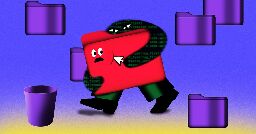More than $35 million has been stolen from over 150 victims since December — ‘nearly every victim’ was a LastPass user



theverge.com
More than $35 million has been stolen from over 150 victims since December — ‘nearly every victim’ was a LastPass user::Security experts believe some of the LastPass password vaults stolen during a security breach last year have now been cracked open following a string of cryptocurrency heists
You are viewing a single comment
I just store recovery phrases of all kinds on an encrypted USB stick (which is obviously only connected to my PC when I need to put a new one in or use it (which so far has happened never)), I feel like that is secure enough for me, although if I could laminate at home I might print and make small cards in a separate a card wallet. Any other way I feel like I would eventually lose them, the particular USB drive ive had for over 15 years, it is 512 MB lol.
USB sticks are not very reliable and can become totally unreadable randomly. I hope you at least have a few backups of it
Yeah, they are horribly unreliable.
I got myself 5 sticks, put the same data on all 5.
1st was dead within a month. 2nd & 3rd both dead in 4m, 4th dead in 6m. The 5th is still alive 3 years later.
It's a shit lottery, don't play it, modern flash drives are absolutely garbage. Yet I still have a whole pile of 1,2, 4 GB flash drives from over a decade ago and they all still work.
Old flash drives used to be all SLC.
Newer ones, use the cheapest tech for the same capacity, with QLC being about 16 times less reliable than SLC.
Carve it in granite and bury it underground so that future archaeologists can be confused over their meaning.
"Great Scott! Jameson come look at this tablet! What does Amazon: BooberMcBoobtit@gmail.com 6942069 mean!?"
At least better than the cloud.
USB sticks can be very different. I would recommend using small M.2 SSD in a stick enclosure.
I would duplicate to at least 2 sticks, and also a written form that you keep stored with important documents, like a safe with your SSN, birth certificate, etc.
For any significant amount of money, the seed should never even touch a PC. No USBs, no printers.